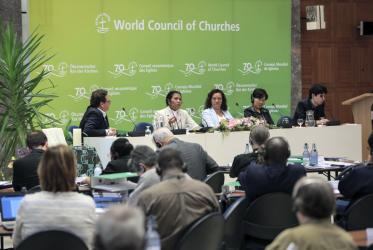Displaying 141 - 160 of 208
WCC 2021 Assembly set for Germany
20 June 2018
WCC Press Conference 20 June at 4pm
20 June 2018
#WCC70: A story of life
07 June 2018
Pope Francis at the World Council of Churches
31 May 2018
WCC participates in 71st World Health Assembly
29 May 2018
Walking Together
Theological Reflections on the Ecumenical Pilgrimage of Justice and Peace
28 May 2018









